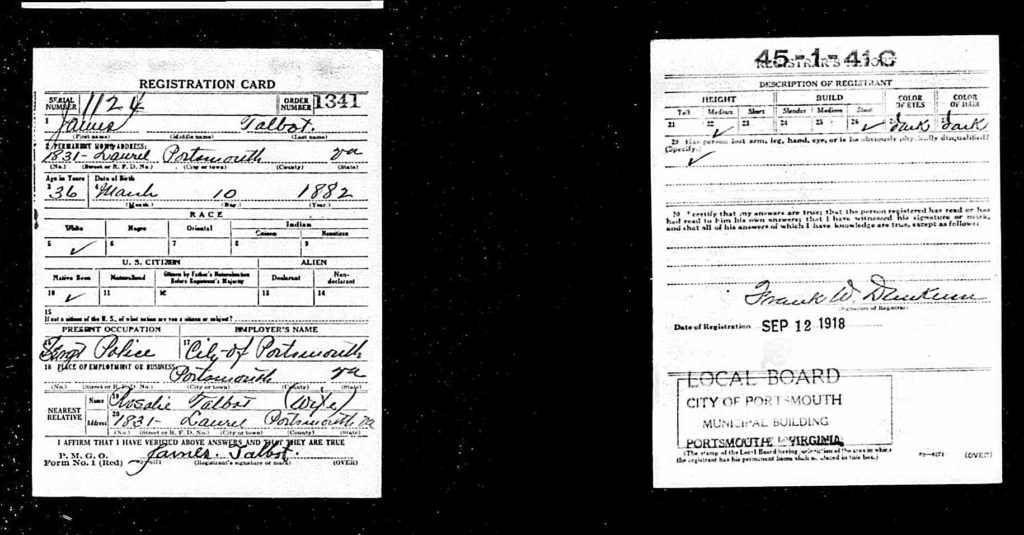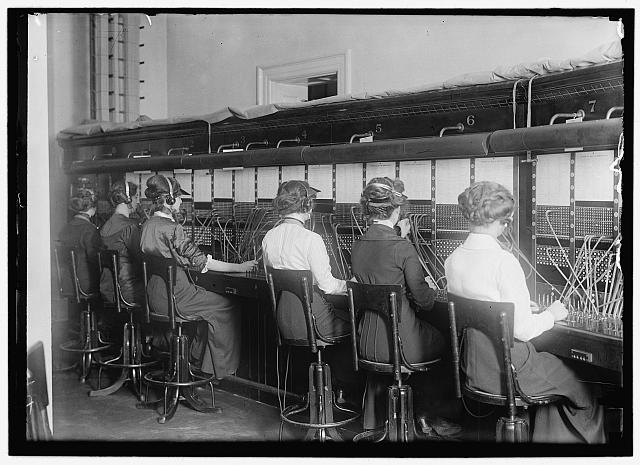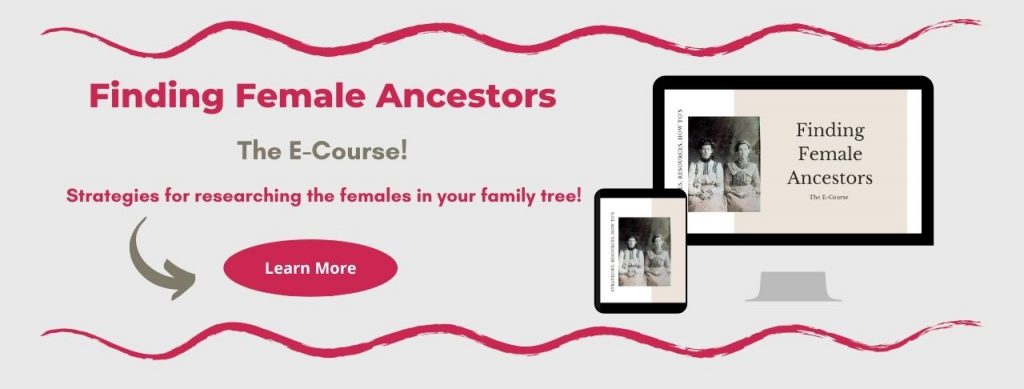
Why Your Ancestor’s Occupation Matters To Your Genealogy Research
***Please note that this post contains affiliate links which means I may earn a commission if you decide to purchase a product/service. This does not cost you extra. Be assured I only recommend products/services that I use and think you would like too. Read my disclosure policy and privacy policy.
Your ancestor’s occupation provides clues to your genealogy research. Explore how to determine what your ancestor did for a living!
The Butcher, the Baker, and the Candlestick Maker…….
Or if I am are looking at the occupations of my ancestors the popular children’s rhyme would go something like this:
The Farmer, the Farmer and the Farmer……. Not as catchy, I’ll admit.
What did your ancestors do to make a living? What was his/her occupation?
A visit to the Tenement Museum in New York a few years ago, opened my eyes to the impact an ancestor’s occupation could have on genealogical research. I was particularly interested in learning information about Jewish immigrants in the late 1800’s and early 1900’s. I had noticed most of the ancestors in this line were tailors or peddlers. In fact, so were their neighbors!
A fantastic tour guide gave me insight why this was. In order to observe the Jewish Sabbath beginning at sundown on Friday and running through sundown on Saturday, the Jewish immigrant needed a job that allowed them to be able to do just that. As tailors or peddlers, they could do piece work in their home or sale their wares and still observe their Sabbath.
Hmm……
For farming ancestors, land was of utmost importance!
Their moves and migrations were often dictated by land. They needed land to raise a family, so they went to where they could obtain land. Interestingly, farmers would often pick land typical of what they were used to.
If a farmer grew up growing tobacco and was skilled in that, he often farmed tobacco if possible in his new location. He didn’t suddenly become a fisherman and spend his days at sea.
Why does understanding your ancestors’ occupations matter?
How your ancestors made a living impacted where they lived, who they associated with and what records their life generated.
While knowing your ancestor’s occupation does not necessarily provide information on other generations, the knowledge does add color and depth to his/her life. The more you understand your ancestor and his or her life choices, the more clues you can extract from his/her records for future research.
Where to Find An Ancestor’s Occupation
You ancestor’s occupation can be found in a surprising number of record sources. Depending on the time period and location being researched, the occupation may not have been recorded. As you plan your research, familiarize yourself with the record sets.
- The Census Records of 1850-1880
- WWI draft cards – Draft cards also recorded an employer’s name if applicable.
- Newspapers – Newspaper research can provide a variety of information on an ancestor!
- Passenger Lists – If your ancestor appears on a passenger list, look to see if their occupation is listed.
- Photographs – Do you have a photograph of your ancestor at work?
Occupational Based Directories and Databases
Some occupations actually have their own directories and record databases. Examples include the New York Teachers Association Members, 1888, the Pennsylvania, Coal Employment Records, 1900-1954, and Post Office Records. Here’s an example of the Appointments of U. S. Postmasters, 1832-1971 (on Ancestry.com).
Did your ancestor own a business? Check the state’s business directories.
Don’t over look CCC records! It’s where my grandfather learned how to cook!
More Occupational Databases!
FindMyPast also has 167 record collections when I searched for “Occupations” recently. Was your ancestor part of the Royal Household Staff? (Really, I’m hoping to find an ancestor or two in that collection!)
Perhaps you want to check the British Army Schoolchildren and Schoolmasters 1803-1932 for your ancestor. Do you have an ancestor who was a teacher in Chester County, PA? Check out Chester County, Pennsylvania, Poor School Children Teachers Bills Index, 1810-1842 . Yes, it’s at FindMyPast!
Archaic Occupations
Sometimes you may discover your ancestor’s occupation only to not have a clue what they actually did! Many of the jobs our ancestors may have performed generations ago no longer exist or are needed.
A quick google search for “archaic occupations” will take you to a number of websites listing out those occupations. Or simply perform a google search for the specific occupation.
Below are examples of the more unusual or fun occupations I have come across:
- Accipitrary – A falconer
- Barker – A tanner
- Milesman – Someone responsible for keeping a specific section of railroad track in good condition
Your Turn!
Start exploring your what your ancestors did for a living. What clues can you glean to help move your research forward?
You Might Also Enjoy These Related Posts














20 Comments
Madelane Coale
One of my ancestors whose story has interested me since I first read about her was, a midwife in 1720 Maine. I want to learn more about early midwives, but can’t seem to find any pertinent information about them.
LisaL
Wow, I bet as a midwife she was very much needed in her community. Finding information on midwives that early is tough as you’ve found out. I expect they were self trained or the skills were passed among the women of the community. If you find out more on her, give us an update!
Annick H
If it was like in France, you may find the information in the Church records especially at that early date and so close to French Canada. I am French and have two midwives among my ancestors. They were elected by the women of the Church as one who had good morals and good standing in the Church, had experience as a mother, was well liked and respected by the folks of the village. She had to swear an oath that the parish priest recorded in the Church book. For both I found the record of their oath in front of the priest and the women of the village. It seems that were all the requirements in the 1700’s.
Judy
My grandmother was the youngest telegraph operator at the state house in Augusta, Maine. My gr-grandmother was the postmistress in their small town in Maine.
LisaL
How interesting! I had a great grandmother who was a postmistress, too.
Joyce Hennig
I had a gr gr grandfather who was a “rag peddler/ dealer in Wisconsin in 1889. Do you know what they did in that occupation
LisaL
That’s an interesting occupation! This might be what was also referred to as a rag picker. People would collect old rags and cloth to sell to be used in the making of paper. Here’s an interesting thesis on the topic: https://arts-sciences.buffalo.edu/content/dam/arts-sciences/history/documents/A%20Penny%20for%20Your%20Rags%20Thesis.pdf
Linda Whitmore
My father, O. Fabian Johnson, was a highway engineer for the federal government (known then as the Bureau of Public Roads) from about 1925 until retirement in 1962. Among his major projects where he worked onsite were the highway to the Grand Canyon (perhaps the bridge over the canyon) circa 1930 and the Alaska-Canada (Al-Can) Highway in 1942 and ’43, where he was headquartered in White Horse, Yukon Territory. If anyone knows where I might find photographs of these projects, I would certainly appreciate learning of them.
LisaL
What a fascinating work history for your father. You might start with NARA’s site for the Records of the Bureau of Public Roads. You may also want to try contacting the park service for the Grand Canyon and see if they have a special archives/records/displays for the development of the Grand Canyon park. I’m not familiar with the Al-Can highway, but also, check with the library or historical societies in White Horse and see what they might.
Joanne
Sometimes you learn surprising things. I couldn’t locate any records for my gg grandfather prior to 1865, when he was a farmer in a German commune near Egg Harbor, NJ, but I knew his kids were born in Hackensack. Egg Harbor was marketed as a haven for Germans during a time when they were being persecuted, so I assumed he went there to escape harassment. Then the local historical society found an interview with my grandmother’s cousin in an unpublished book. She said he was a baker, and the Hackensack River flooded the bakery all the time, which aggravated his rheumatism. The doctor recommended finding a new job like farming, so he put the family on a boat to southern New Jersey, where he bought the land that some of his descendants still farm today.
LisaL
Wow, what a great story. Nice job on finding that bit of local history.
Lisa Howland
My Great-Grandfather, Frederick Lee Howland, was a concrete finisher in Lapeer, MI. He disappears from all records after a divorce in 1922. Any ideas on finding what happened to him? My 2nd cousin and I have been combing records for 12 years with zero clues. Unfortunately, there are many who have combined him with 5 other men with similar names also from MI, but upon tracking them down not one of them is the same man as our GGF.
LisaL
Any number of things could account for his disappearance from the records. He may have left the area where he went could be tough to track. Other sources I like to look at are tax records and city directories since they help track ancestors year by year.
Janice Kistler
Hi,
During the pandemic last summer I did a Zoom library program on whether or not the stories passed down from generation to generation were true or not. I had heard that my grandfather had misplaced some money. Turns out he was a Justice of the Peace. I never knew that. All I could find was that he didn’t turn over the “books” when someone else was voted in his place. If the “books” were accounting then the story is true, but I can’t be 100% sure.
Looking forward to your next installment via email.
LisaL
A great story! I love oral history, and we have to wonder about untold parts of the stories. 🙂
Karen
Out of over 1400 people in my tree, I have one judge, one sheriff, one doctor and ALL the rest (of the men) were farmers. Pretty boring! It does create land records, though.
Sandra Reeson
Hi Lisal,
I could not find my gg grandfather William Moore born in England, who sailed to New Zealand in 1864 and kept a diary. He mentioned that his father had died and he was making a light coat for the First Mate so I surmised he was a tailor.
I live in Australia and visited the National Archives in Kew, England a few years ago. You can go on any ancestry sites for free, so I went to Find mypast and put in the profession and there was a few pages of names. I then looked at 1861 Census and 1871 and found in 1871 that the father had died and no William Moore. A bit more checking and I had found my William Moore as it was a common name. I love being a detective of my family tree.
Sandra Reeson
LisaL
What a great story! We should all officially call ourselves “family tree detectives’!
LisaL
What a great story! We should all call ourselves “family tree detectives”.
Bettie Utter
A lot of my ancestors were farmers. One grandfather owned a brickyard, manufactured bricks in late 1800’s, early 1900’s. He sold the brickyard and opened a grocery store. He retired from there. I had the privilege of knowing him and my grandmother. Grandpa died when I was 13 and I was 22 when Grandma died.
My maternal grandfather ( son of the above grandparents) was a brakeman for the CB &Q railroad in Central Illinois. When work was slow he hung wallpaper for people. As a kid I loved looking through all the wallpaper books! He also painted house inside and out.